Youxiang Duan
Multi Objective Resource Optimization of Wireless Network Based on Cross Domain Virtual Network Embedding
Feb 03, 2022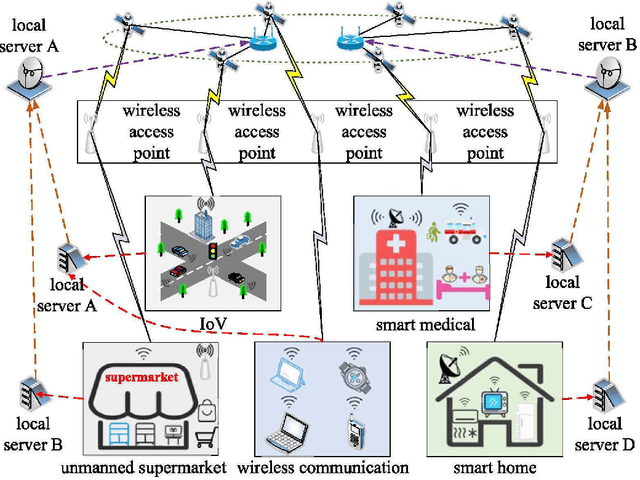
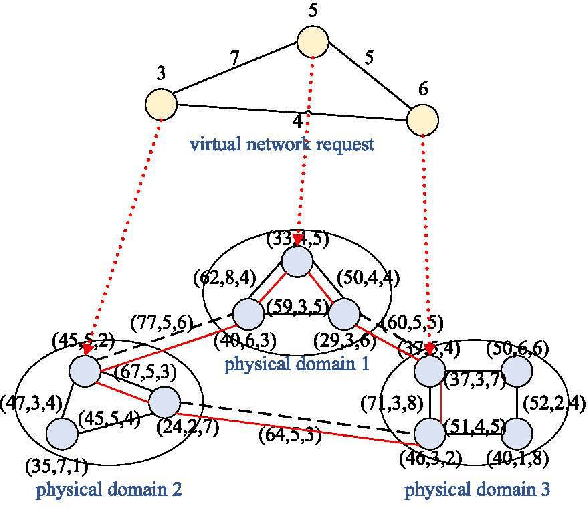

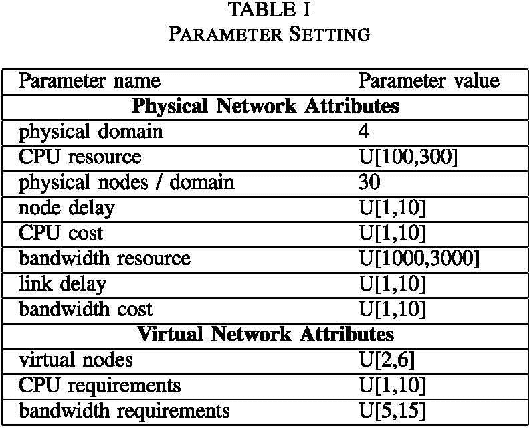
Abstract:The rapid development of virtual network architecture makes it possible for wireless network to be widely used. With the popularity of artificial intelligence (AI) industry in daily life, efficient resource allocation of wireless network has become a problem. Especially when network users request wireless network resources from different management domains, they still face many practical problems. From the perspective of virtual network embedding (VNE), this paper designs and implements a multi-objective optimization VNE algorithm for wireless network resource allocation. Resource allocation in virtual network is essentially a problem of allocating underlying resources for virtual network requests (VNRs). According to the proposed objective formula, we consider the optimization mapping cost, network delay and VNR acceptance rate. VNE is completed by node mapping and link mapping. In the experiment and simulation stage, it is compared with other VNE algorithms, the cross domain VNE algorithm proposed in this paper is optimal in the above three indicators. This shows the effectiveness of the algorithm in wireless network resource allocation.
Network Resource Allocation Strategy Based on Deep Reinforcement Learning
Feb 03, 2022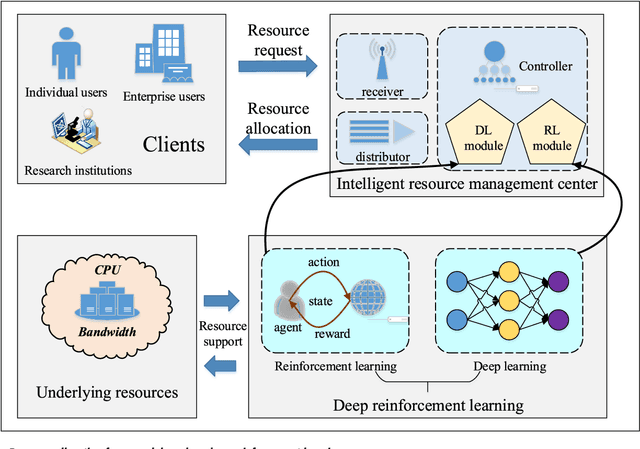
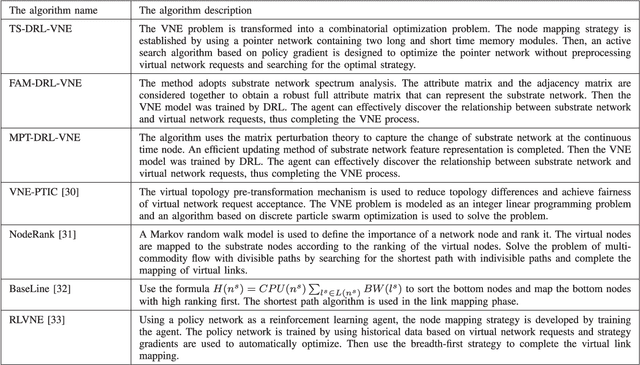
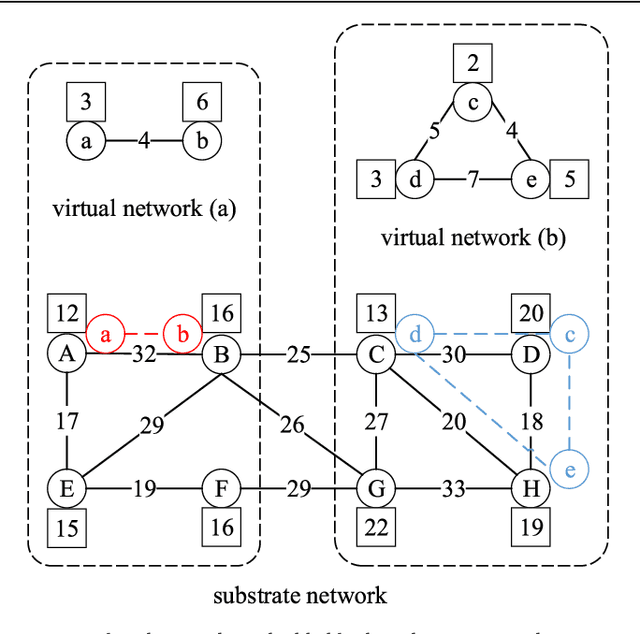
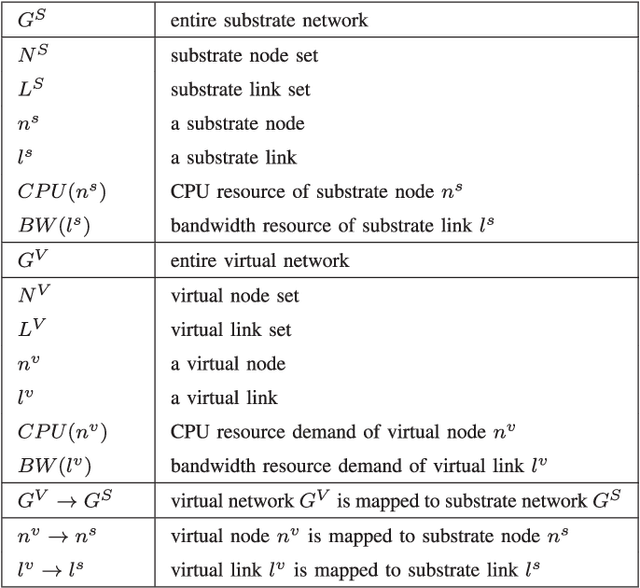
Abstract:The traditional Internet has encountered a bottleneck in allocating network resources for emerging technology needs. Network virtualization (NV) technology as a future network architecture, the virtual network embedding (VNE) algorithm it supports shows great potential in solving resource allocation problems. Combined with the efficient machine learning (ML) algorithm, a neural network model close to the substrate network environment is constructed to train the reinforcement learning agent. This paper proposes a two-stage VNE algorithm based on deep reinforcement learning (DRL) (TS-DRL-VNE) for the problem that the mapping result of existing heuristic algorithm is easy to converge to the local optimal solution. For the problem that the existing VNE algorithm based on ML often ignores the importance of substrate network representation and training mode, a DRL VNE algorithm based on full attribute matrix (FAM-DRL-VNE) is proposed. In view of the problem that the existing VNE algorithm often ignores the underlying resource changes between virtual network requests, a DRL VNE algorithm based on matrix perturbation theory (MPT-DRL-VNE) is proposed. Experimental results show that the above algorithm is superior to other algorithms.
 Add to Chrome
Add to Chrome Add to Firefox
Add to Firefox Add to Edge
Add to Edge